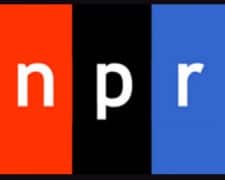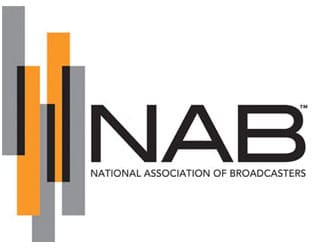 Earl Blumenauer (D-OR) thought the congressional battle over funding public broadcasting was over for awhile, and took to the House floor to express his dismay that only 15 months later, the opposition party has brought it up again despite widespread and bipartisan support for the service.
Earl Blumenauer (D-OR) thought the congressional battle over funding public broadcasting was over for awhile, and took to the House floor to express his dismay that only 15 months later, the opposition party has brought it up again despite widespread and bipartisan support for the service.
Here are Blumenaur’s remarks:
“There is a sad, unnecessary battle shaping up again over the future of public broadcasting. It’s not an exaggeration to say that this battle is about the very future, the very existence of public broadcasting. You might have thought that we were past this when, 15 months ago, the Republican House leadership targeted NPR and tried to defund the Corporation for Public Broadcasting.
“Luckily, last year, the 170 million people who don’t just listen or watch public broadcasting but depend upon it, unleashed an unprecedented show of support. As a result, the Republican leadership walked back. They cut, but did not kill, the Federal support for public broadcasting despite the rhetoric. And there was actually a constructive sign in last year’s appropriations bill that requested a study to examine alternatives to funding public broadcasting with Federal funding so that people would have hard facts to operate on this year.
“Ironically, that study–requested by our Republican colleagues–now being circulated, clearly shows that there is no viable alternative to Federal funding for public broadcasting. Many of the proposals that have been suggested would actually end up with less overall revenues in the long term.
“The House appropriations bill being marked up this morning would slash funding now, defund NPR Federal support, and end public broadcasting as we know it, within 2 years. At the same time, we have a Republican Presidential nominee who singled out public broadcasting as one of the five programs that he would eliminate.
“This is because Governor Romney and the Republicans listen to a tiny fraction of the American public that is even a minority in their own party. A recent poll showed that two-thirds of the Republicans surveyed would either keep Federal funding as it is, or increase it. What resonates with Republican primary voters is not what America wants, needs, or believes.
“The unprecedented threat comes at exactly the time America needs public broadcasting most. NPR News, the object of greatest Republican scorn, is the most trusted brand in the American news media. Listeners learn something, unlike Fox News viewers, who, surveys show, actually know less about the facts than people who listen to no news at all.
“NPR News has again the highest rating for the ninth year in a row. PBS shows like ‘Sesame Street’ have helped three generations of parents raise their children with effective, commercial-free educational programming.
“Locally owned news is becoming only a memory for most of America as larger corporations buy up radio and television stations and local newspapers. There’s no money to be made by commercial stations that cater to the special needs of rural and small-town America. But public broadcasting is there because their mission is to serve, not make money. Often, these locally owned and managed public broadcasting stations are the only source that is direct news, education, and entertainment locally managed for local needs.
“We must stop the attack on this critical service for rural and small-town America. It’s time for the 170 million Americans who depend on public broadcasting every month to speak out again and for Congress to finally listen.
“The radical proposal to slash public broadcasting, defund NPR, and terminate public broadcasting as we know it, is the most powerful symbol of how out of step the Republican leadership is from the country they are supposed to represent.
“There’s no reason to make public broadcasting a partisan issue. The American public has broad support for it, Republicans, Independents and Democrats alike, especially when PBS and its member stations were named number one in public trust and an “excellent” use of taxpayer dollars for the ninth consecutive year.
“Since I’ve been in Congress, we’ve beaten back this destructive effort, but our challenge now has never been more urgent. It’s time for people who believe in public broadcasting to stand up to what can only be termed extremism and settle this question once and for all about the future of public broadcasting. For unless we fight it now, there may be nothing left to protect.”
RBR-TVBR observation: For opponents of public broadcasting, we can only say be careful what you wish for – alternative funding methods could very well put noncommercial stations into competition with commercial stations for promotional money. It’s called advertising in the commercial world and underwriting in the non-profit sector.
Broadcasters were having enough trouble recovering from the bursting of the dot-com bubble when the housing bubble burst and the Great Recession hit. The business is just now starting to come out of it, and the last thing broadcasters need is a whole new platoon of salespeople trying to scare up funding from the same people broadcasters are trying to get to buy advertising.





